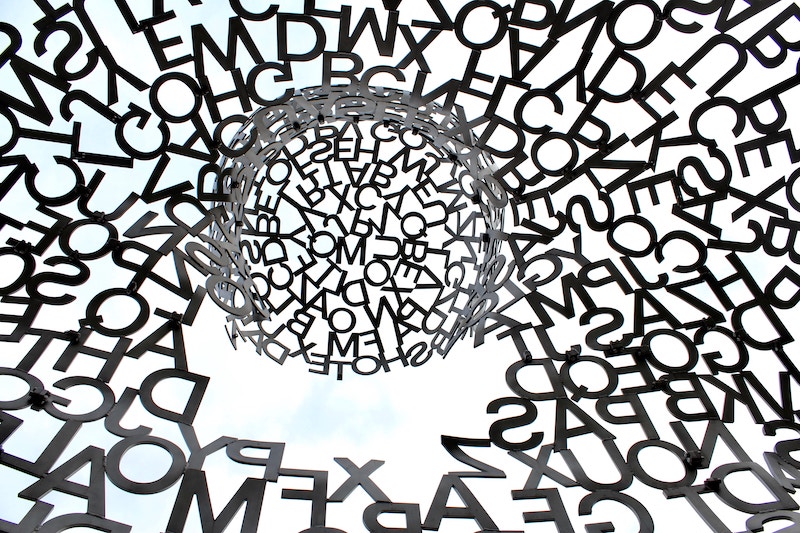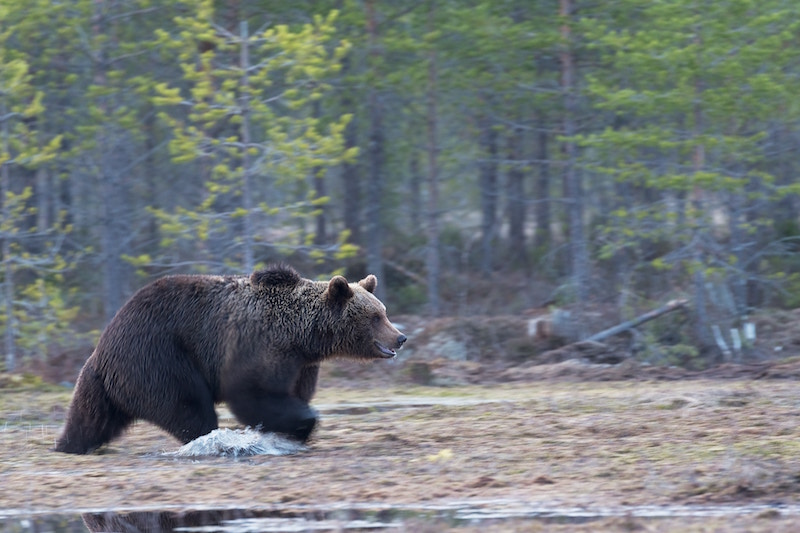My favorite topic of German grammar is declension! 😉 Just the opposite of many German students… But it is not as complex as many students think! In this post you can learn about my simplified declension method.
This is a complementary post about the German declension after specific adjectives, indefinite pronouns and numerals in order to clear your last doubts about this topic.
“Strong” vs. “weak” inflection
As occurs in other Germanic languages as well, in German we use these two adjectives with the following meaning:
Strong means a verb or ending has the “strength” to change a lot. In verbs it refers to the vowel change in present tense, Perfekt and Präteritum (example: ich nehme, du nimmst, ich nahm, ich habe genommen).
As to declension, it means the ending can have many different forms: großer, großes, große, großem, großen (the changing last letter makes it possible to define gender, case and number of the following noun).
Weak means a verb or ending is so “weak/faint/inactive” it cannot change at all (referring to the root of a verb, example: ich mache, du machst; ich machte, ich habe gemacht) or it changes only hardly.
As to declension, it means there are only two possible endings: –e or –en (so we cannot define clearly which gender, case and number the noun is).
How do I know when to use the strong or weak ending?
The particularity of the German declension is that the adjective depends always on which type of article we use or if there is none.
Adjectives have the strong endings (-r, -s, -e, -m, -n) after the
- indefinite (ein/-e), negative (kein/-e) or possessive (mein/-e, dein/-e, etc.) article in nominative (das ist [k]ein schönes Auto),
- indefinite (ein)/negative (kein)/possessive (mein) article in accusative feminine ([k]eine/meine neue Tasse) and neuter ([k]ein/mein neues Auto),
- or without article, also called “zero article” (er kam mit großem Hunger, ich brauche neue Schuhe).
Adjectives have the weak endings (-e, -en) after the
- definite article (das schöne Auto gehört Hanna),
- negative (kein) and possessive (mein) article in plural (keine/meine neuen Sachen),
- demonstrative articles dieser/jener (this/that),
- interrogative pronoun welcher (which),
- pronoun jeder (everyone),
- indefinite/negative/possessive article in accusative masculine, dative and genitive (complete).
Special cases
The adjective has also the strong (-r, -s, -e, -m, -n) endings after
- the numeral adjectives viel/wenig: viel/wenig Gutes (singular), viele gute Dinge (plural),
- numerals (zwei große), also after genitive/dative zweier, dreier, etc. (zweier großer Häuser),
- mehrere,
- einiger (masculine singular): einiger politischer Sinn; and einige (plural): einige gute Menschen,
- etliche(r/s): etlicher politischer Zündstoff, etliche gute Menschen, die Taten etlicher guter Menschen.
- manch (without ending): manch guter Vorsatz, manch gutes Buch.
The adjective has also the weak (-e, -en) ending after the
- indefinite pronoun alle(r/s) (singular)/alle (plural): (nom./acc. sing.) alles Gute, (nom./acc. plur.) alle guten Übungen, (genitive) alles/allen (neuen) Lebens
- indefinite pronoun manche(r/s) (some): mancher gute Vorsatz (in plural, also the strong ending is possible: manche ältere Leute),
- indefinite pronoun solche(r/s) (such): solcher feine Stoff (in plural, also the strong ending is possible: solche gute Menschen),
- indefinite pronoun and numeral beide (both): beide großen Gemeinschaften (but with article: die beiden großen Gemeinschaften),
- einiges (neuter singular): einiges alte (rare: altes) Gerümpel.
Declension after personal pronouns
According to Duden, both options are possible after a personal pronoun depending on if an adjective follows or not.
- weak ending (with adjective): wir bescheidenen Leute; wir Armen; wir Erwachsenen; wir Deutschen (obsolete: wir Deutsche); ihr geliebten Berge!; ihr Lieben/ihr beiden (also: ihr beide), wir/ihr beiden jungen Leute
- strong ending: wir alle, wir/sie/Sie beide (rare: wir beiden), (genitive:) unser/euer/ihrer beider


